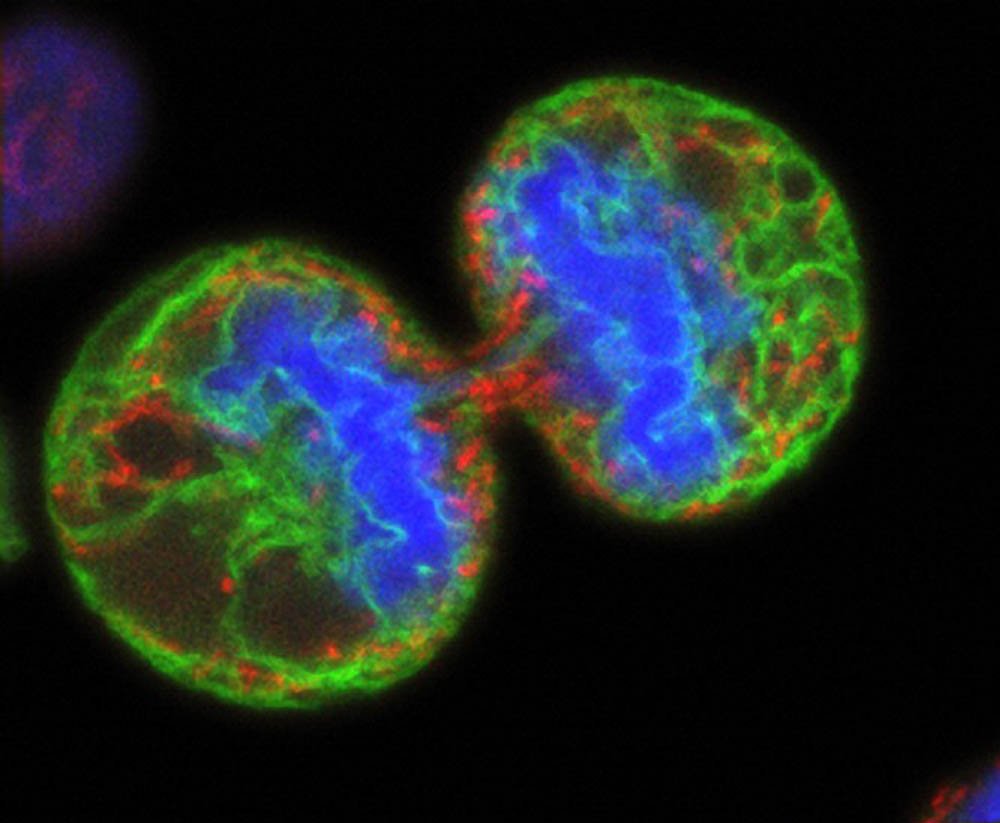Signatures of sunlight

In a landmark study, researchers have described the first comprehensive catalogue of somatic mutations in a cancer genome. The breadth and clarity of the view of the genome from a patient with malignant melanoma is matched only by a companion study on lung cancer, published in the same issue of Nature.
The melanoma genome contains more than 33,000 mutations, many of which bear the imprint of the most common cause of melanoma – exposure to ultraviolet (UV) light. But the comprehensive catalogue of mutation reveals other more unusual mutations and many not related to exposure to UV light.
Malignant melanoma is responsible for three out of four skin cancer deaths: most forms of skin cancer are relatively treatable, especially if detected early.
“This is an unprecedented view of a cancer genome. Written within this code is the history of this cancer – its mutations from UV light and the mutations it acquired when it spread within the patient. We have revealed the archaeology of exposure in this cancer genome, which becomes a palimpsest of successive mutations.”
Professor Michael Strattonfrom the Cancer Genome Project at the Wellcome Trust Sanger Institute
“It is amazing what you can see in these genomes. UV-light-induced mutations leave a typical signature, forming the vast majority of the mutations.
“Indeed because of the clarity of the genome data, we can distinguish some of the early, UV-induced mutations from the later mutations that do not have this signature, presumably occurring after the cancer cells spread from the skin to deeper tissues.”
Dr Peter Campbell from the Wellcome Trust Sanger Institute
The sequence also shows the genome’s attempts to protect itself from damage With DNA repair systems most active in gene regions, whereas the regions between genes are left less well guarded. Even with these actions, 182 changes in genes that would impair their function were charted.
“Within the lists of disrupted genes are all those that have driven the original cell to this malignant state. We know that this cancer sample has a mutation in BRAF and other genes already implicated in melanoma. To discern all the important changes, we will need to analyse more samples.”
Dr Andy Futreal, from the Cancer Genome Project at the Wellcome Trust Sanger Institute
The genomes – cancer cell and normal cell – were sequenced more than 70 times over to produce accurate data.
The project was led by researchers from the Wellcome Trust Sanger Institute. In 2002, this group discovered that a mutation in one gene called BRAF was important in driving development of melanoma. That discovery has already driven the development of novel therapies that are in clinical trials.
Notes and statistics
Malignant melanomas are the least common types of skin cancer, but the most serious. There are around 10,000 new cases each year in the UK, around 60,000 in Europe and around 54,000 in the USA.
More information
Funding
This work was supported by the Wellcome Trust. Support for individual researchers was from the Kay Kendall Leukaemia Fund and the Human Frontiers Science Program.
Publications:
Selected websites
The Wellcome Trust Sanger Institute
The Wellcome Trust Sanger Institute, which receives the majority of its funding from the Wellcome Trust, was founded in 1992. The Institute is responsible for the completion of the sequence of approximately one-third of the human genome as well as genomes of model organisms and more than 90 pathogen genomes. In October 2006, new funding was awarded by the Wellcome Trust to exploit the wealth of genome data now available to answer important questions about health and disease.
The Wellcome Trust
The Wellcome Trust is a global charitable foundation dedicated to achieving extraordinary improvements in human and animal health. We support the brightest minds in biomedical research and the medical humanities. Our breadth of support includes public engagement, education and the application of research to improve health. We are independent of both political and commercial interests.


